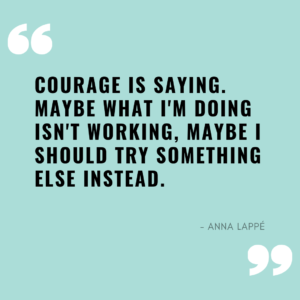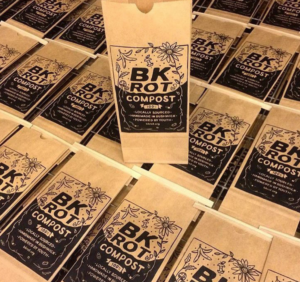 I’ve been asking some questions about a new compost project that seems to be quite popular in my town and others. I’m a huge advocate of composting and consider zero waste to be a very important concept as we move forward in the ecological emergency we are living in.
I’ve been asking some questions about a new compost project that seems to be quite popular in my town and others. I’m a huge advocate of composting and consider zero waste to be a very important concept as we move forward in the ecological emergency we are living in.
After reading the IPCC report, I understand how essential it is for us to cut our carbon emissions significantly if we are to stay below 2 degrees of warming. If we continue to ignore this vital issue, we are in for big trouble in the years ahead. PS: “big trouble” is an understatement.
The new food scrap recycling program that is being promoted by many well meaning green groups seems to have lots of carbon emissions going along with it. Here’s how it works. Participants buy a special plastic bin to store their food scraps for recycling. The plastic bins are made somewhere far away, I do not know where. I do know that they come on a pallet wrapped in plastic wrap, most likely trucked in on an 18 wheeler. The plastic bins are to be used with special biodegradable bags that are made from cornstarch. Where they are from, I do not know. Why bags and the bin are needed along with the bags, I’m not quite sure.
Participants are to fill their cornstarch bags with food scraps and drop them off at a central pick up location. From there, a garbage truck picks up the food scraps and drives them up to the Ulster County Resource Recovery Facility which is 75 miles away from where I am sitting right now, a 90 minute drive. This facility is the place where food scraps get turned into compost.
From what I can see, the big winner in these projects is the garbage hauler. They pay by the pound at the incinerator in Peekskill, by having less wet heavy food scraps in their trucks they save big bucks. The compost place up in Ulster County pays them for a truckload of food scraps. Motivated homeowners who want to help the environment provide the free labor to sort their garbage and feed them the valuable food scraps. We do get less toxic fumes out of the incinerator, which burns 2500 tons of garbage daily, but we do get more garbage truck fumes from those trips up to Ulster.
Participants don’t get any compost out of the deal so most homeowners continue to buy compost at their local garden store. Most compost comes in plastic bags trucked in from far away. I haven’t calculated the emissions from trucking all that compost.
The simple, reductionist thinking behind these sort of food scrap projects reminds me of the lemonade stands that kids set up. Parents buy the lemons, sugar and cups, kids sell the lemonade and make the money. Without stepping back and take a good long look at the big picture, we can end up doing more harm than good.
What if we composted in our yards instead? Or how about in a nearby school, park, community garden or house of worship? If we created community compost projects close to where we live, we could even turn it into a “green job” for someone. The benefits would be less plastic, less carbon emissions and you’re end up with compost for your yard without having to buy some from far away.
 In Brooklyn, smart entrepreneurs have created a local compost business that does not rely on fossil fuels and creates local green jobs. They use bikes to rescue food scraps and have a beautiful hand turned compost operation. They sell their compost in paper bags, which are compostable!
In Brooklyn, smart entrepreneurs have created a local compost business that does not rely on fossil fuels and creates local green jobs. They use bikes to rescue food scraps and have a beautiful hand turned compost operation. They sell their compost in paper bags, which are compostable!
I dream of a day when green groups can prioritize what really matters. Based on what I’ve been reading (that IPCC report!) we really need to get serious about reducing emissions. That is going to mean re-localizing what we are up to. Bigger is not necessarily better. Do we have the courage to look at what we are doing and asking tough questions?

